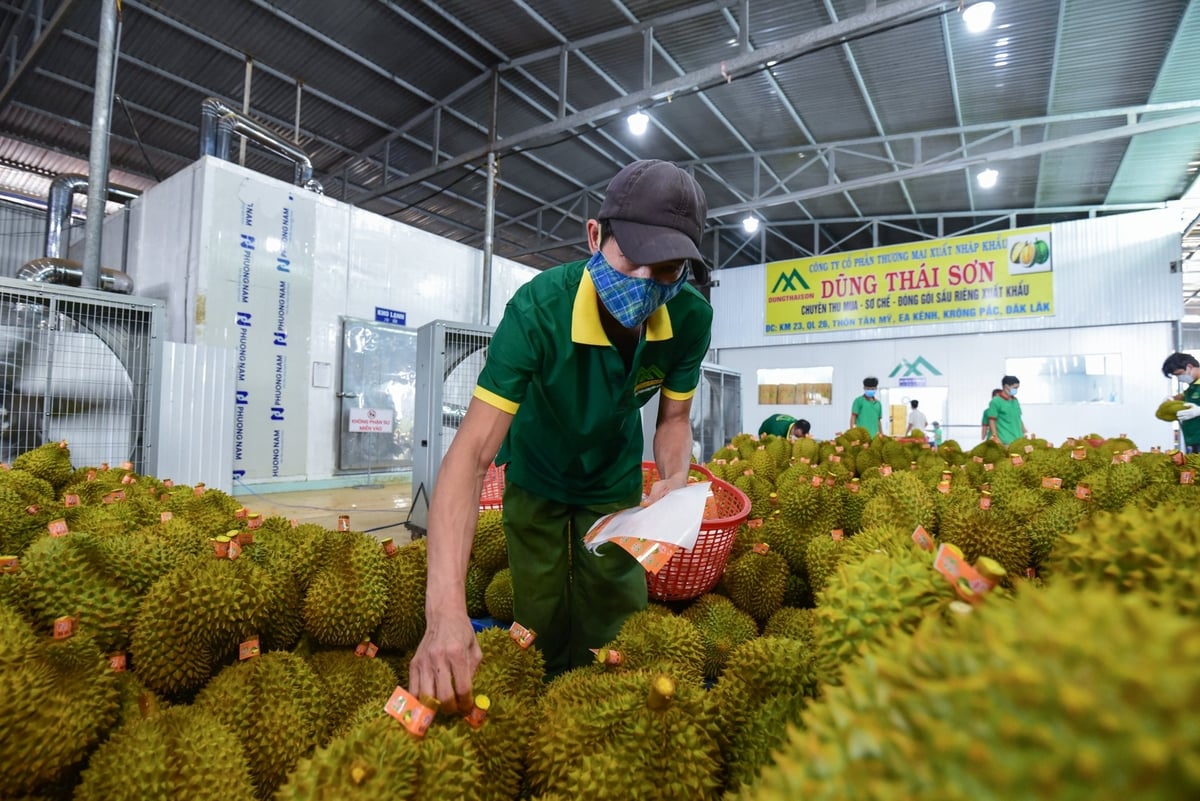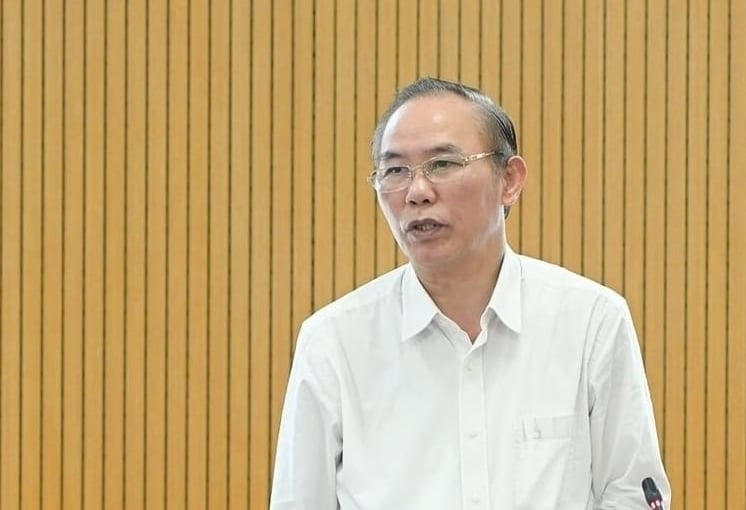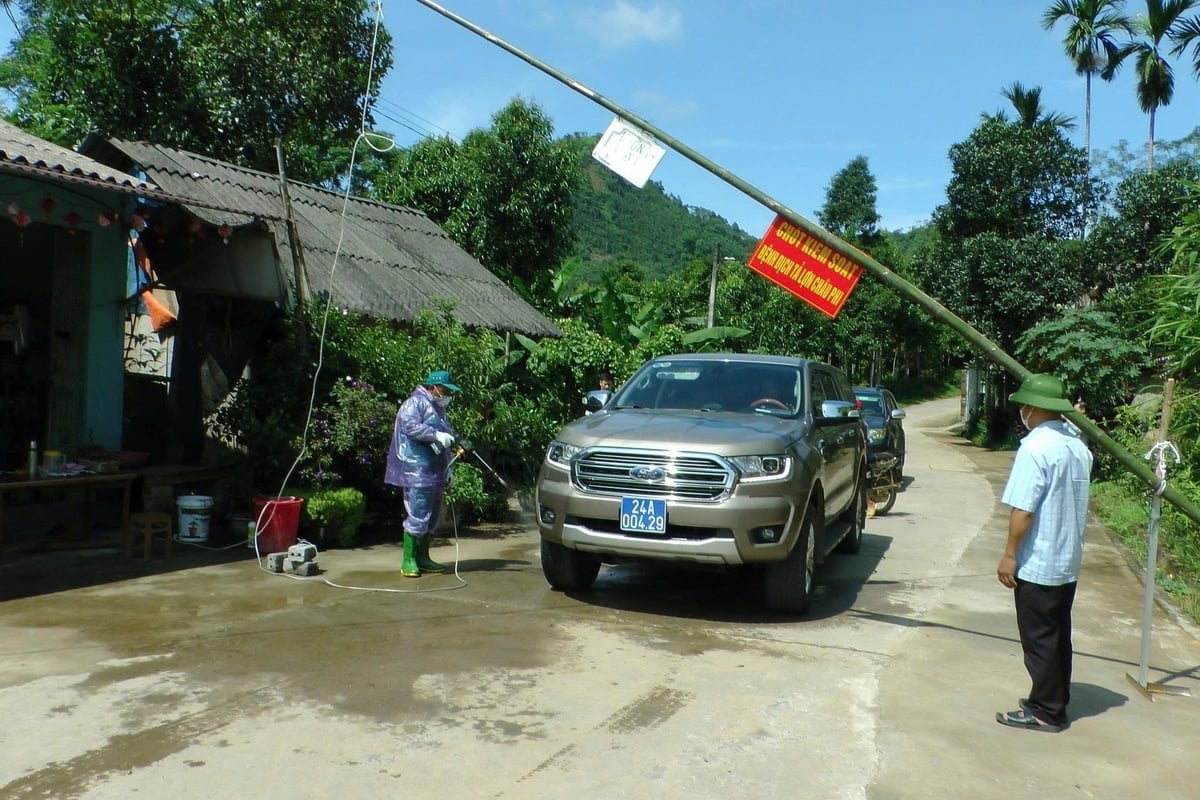December 30, 2025 | 22:09 GMT +7
December 30, 2025 | 22:09 GMT +7
Hotline: 0913.378.918
December 30, 2025 | 22:09 GMT +7
Hotline: 0913.378.918
The production, market, and import-export situation of agricultural, forestry, and fishery (AFF) products in the first seven months of the year faced numerous challenges, particularly heavy rains, flooding in the country, and fluctuations in the international trade market.
At a press briefing on August 4, Deputy Minister of Agriculture and Environment Phung Duc Tien reported that rice production in July 2025 reached 27.6 million tons, up 2.3% compared to the same period last year. Aquatic product output reached 5.5 million tons, an increase of 3.1% year-on-year, with exports valued at about USD 950 million in July. This indicates that this year, Viet Nam is likely to achieve 44 million tons of rice and maintain aquaculture growth at 4.35% as planned.

Vietnam's AFF exports reach nearly 40 billion USD in the first 7 months of 2025. Photo: Tung Dinh.
In the livestock sector, the pig herd reached over 30 million head, up 2.1% despite the nationwide impact of African swine fever. The poultry population increased by 3.9% to 584.5 million birds, with slaughter output at around 2 billion birds. However, poultry meat prices have risen due to the effects of smuggling, creating difficulties for an estimated 6 million poultry-farming households.
Although exports have faced challenges from fluctuating product prices, AFF export turnover in July was estimated at USD 6 billion, bringing the total AFF export value for the first seven months of the year to USD 39.68 billion, witnessing an increase of nearly 15%. Of this, the trade surplus reached USD 11.52 billion, up 15.9%.
To respond to U.S. tariffs and shifts in market structure, Viet Nam is focusing on expanding key markets such as Europe, Africa, and the Halal market. In addition, restructuring and prioritizing the production of agricultural products with more competitive prices remain crucial strategies to sustain the export target of USD 65 - 70 billion in 2025.
Disease prevention and control in livestock production, especially African swine fever, remains a top priority. Strong measures have been implemented, particularly vaccination campaigns and tighter epidemic control. Despite difficulties in securing budget allocations and organizing local-level implementation, these measures have helped minimize losses and maintain stability in livestock production.
Deputy Minister Phung Duc Tien stated that a series of conferences and directives have been issued recently, notably the Prime Minister’s Official Telegram No. 109/CĐ-TTg on African swine fever. Large enterprises and farms have maintained strong biosecurity measures and rolled out vaccination programs. Mortality rates in industrial-scale farming remain very low, with recent outbreaks mainly occurring in smallholder farms, resulting in the culling of around 136,000 pigs.

Deputy Minister of Agriculture and Environment Phung Duc Tien affirmed that the sector will continue to increase the share of exports to potential markets, offsetting the impact of U.S. reciprocal tariffs. Photo: Tung Dinh.
Given the complex rainy and flood conditions and the African swine fever virus’s rapid transmission and high virulence, the Ministry of Agriculture and Environment (MAE) has instructed veterinary officers to go directly to provinces such as Lang Son and Phu Tho to coordinate with local veterinary sub-departments in eradicating the disease.
Provinces have been required to strictly implement four measures: declaring outbreaks, culling infected animals, sanitizing the environment, and preparing breeding stock for herd repopulation. In some localities, such as Lang Son, authorities have quickly established a Sub-Department of Livestock Production and Animal Health and set up inter-commune stations to strengthen anti-epidemic forces.
According to the Department of Livestock Production and Animal Health, the synchronized vaccination procedure for sows, boars, and market pigs is expected to be completed by October.
MAE has also called for clear guidelines on the disposal of animal carcasses and environmental disinfection to ensure biosecurity and readiness for restocking, meeting consumer demand for the New Year and Lunar New Year holidays. “The goal is to prevent sudden spikes in pork prices that could affect socio-economic stability,” the Deputy Minister emphasized.

According to the Department of Livestock Production and Animal Health, it is necessary to step up disinfection and sterilization efforts, especially during seasonal weather transitions and periods of flooding. Photo: Thanh Tien.
Mr. Phan Quang Minh, Deputy Director General of the Department of Livestock Production and Animal Health, stated:
“Following the Prime Minister’s issuance of Official Telegram No. 109/CĐ-TTg on July 16, the MAE has stepped up directives and monitoring of the situation. However, cases of improper disposal of pig carcasses are still occurring. The number of infections recorded since the end of July has shown a downward trend.”
Disease prevention and control require close coordination between all levels of government and local forces, especially at the commune level. In some areas, violations such as illegal transportation, improper disposal of pigs, or slaughtering without proper procedures have been penalized, with some cases even facing criminal prosecution. However, due to the limited number of grassroots veterinary staff, some communes have only one person, or even none. It is necessary to mobilize additional personnel from other sectors to set up quarantine checkpoints and carry out disinfection measures.
Notably, a recombinant virus strain has recently emerged, reducing the protective effectiveness of some existing vaccines. Pathogens remain present in old outbreak sites and in certain pig herds, especially after storms, floods, and heavy rains.
MAE is working with businesses and scientists to collect samples, isolate the virus, and research and produce vaccines suitable for the circulating strain. However, this process takes time and must undergo field verification before being rolled out on a large scale.
Translated by Kieu Chi

(VAN) Located in three former provinces, Nam Dinh, Thai Binh, and Ninh Binh, and now in two provinces, Ninh Binh and Hung Yen, "Red River Delta" is the name of Vietnam's first interprovincial coastal wetland World Biosphere Reserve.
/2025/12/29/1046-1-210728_624.jpg)
(VAN) In 2025, Viet Nam recorded severe and extreme disasters, breaking multiple historical records and causing heavy losses in lives, property, and infrastructure nationwide.

(VAN) Applied technologies, water-saving irrigation is a strategic solution to promote climate-resilient agriculture and strengthen water security in the uplands.
/2025/12/29/3936-3-163422_251.jpg)
(VAN) Can Gio mangrove forest in particular and the entire Can Gio Mangrove Biosphere Reserve in general hold great potential for carbon credits.

(VAN) Chu Pah Rubber has announced its products that comply with the EU Deforestation Regulation (EUDR), affirming its commitment to sustainable production and product origin transparency.

(VAN) Deputy Director Nguyen Hoai Nam stated that a digital data platform will be developed with agricultural sector databases, utilizing AI to help farmers make informed decisions on 'watering correctly, sufficiently, and efficiently.’
/2025/12/29/4841-2-134224_777.jpg)
(VAN) From only about 10 individuals in 2009, the wild elephant population in Dong Nai has recovered to nearly 30 animals after more than 10 years.